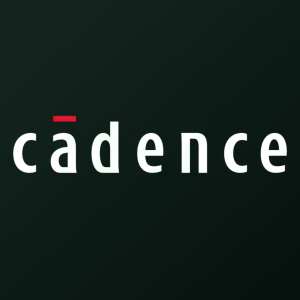Cadence Extends Collaboration with TSMC and Microsoft to Advance Giga-Scale Physical Verification in the Cloud
Cadence Design Systems (CDNS) has announced an expanded collaboration with TSMC and Microsoft to enhance physical verification for giga-scale digital designs on the Microsoft Azure cloud. This collaboration allows customers to utilize the Cadence Pegasus Verification System along with TSMC technology, directly benefiting from the Cadence CloudBurst Platform.
Initial outcomes show that using the Pegasus system in the cloud can improve performance and reduce compute costs by over 20%. The system's FlexCompute technology dynamically manages CPU resources, thus optimizing utilization and reducing turnaround times. The partnership aims to help design teams effectively manage large designs while meeting tight deadlines and budget constraints.
- Collaboration with TSMC and Microsoft enhances verification capabilities, leading to better execution of large designs.
- Initial findings reveal a more than 20% reduction in cloud compute costs when using the Pegasus Verification System in the cloud.
- FlexCompute technology optimizes CPU usage, improving turnaround times for design projects.
- None.
Highlights:
- Enables customers to effectively leverage the Cadence Pegasus Verification System and TSMC technology on the Microsoft Azure cloud with the Cadence CloudBurst Platform
-
Initial results demonstrated that the Cadence Pegasus Verification System in the cloud provided optimal performance and reduced cloud compute costs by more than
20%
Executing physical verification on large digital designs traditionally consumes significant compute resources for long periods of time—up to days—while requiring high-performance machines with large, expensive physical memory. Given that physical verification is one of the final tasks prior to tapeout, designers are under extreme pressure to meet aggressive design schedules and compute budgets.
The Cadence Pegasus Verification System was built from the ground up for massively distributed implementation on-premises and in the cloud. The Pegasus Verification System’s FlexCompute technology provides dynamic, automated CPU management, saving users from having to specify exact CPU requirements. FlexCompute also optimizes CPU utilization, providing the optimal balance between turnaround time and cloud compute resources. Initial results demonstrated that the Pegasus Verification System in the cloud provided optimal performance and a
“Driven by the constant push to meet consumer demands while coping with increasingly larger design sizes, design teams can look to the cloud to verify designs with flexible compute resources,” said Dan Kochpatcharin, head of the
“Through our latest work with TSMC and Microsoft, we’ve continued to deliver innovations that help customers resolve their most pressing physical verification design challenges,” said Dr.
For more information on the expanded Cadence, TSMC and Microsoft collaboration, a new white paper is available for download at TSMC-Online at https://online.tsmc.com/online/. The white paper details the giga-scale strategy behind the Pegasus Verification System’s cloud execution model and includes a set of guidelines, sample scripts, detailed illustrations, the CloudBurst reference architecture and the Azure cloud IT best practices guidelines for optimizing cloud resources. In addition, TSMC, Microsoft and Cadence will deliver a presentation that highlights the collaboration at the upcoming
The Pegasus Verification System is part of the broader digital flow, which provides an accelerated path to design closure. The CloudBurst Platform provides fast, easy access to Cadence tools and is part of the broader Cadence Cloud Portfolio. The digital and cloud portfolios support the Cadence Intelligent System Design™ strategy, which enables customers to achieve system-on-chip (SoC) design excellence. For more information on the Cadence Pegasus Verification System, please visit www.cadence.com/go/pegasuscloudcollabpr. For more information on the Cadence CloudBurst platform, please visit www.cadence.com/go/cloudbppr.
About Cadence
Cadence is a pivotal leader in electronic systems design, building upon more than 30 years of computational software expertise. The company applies its underlying Intelligent System Design strategy to deliver software, hardware and IP that turn design concepts into reality. Cadence customers are the world’s most innovative companies, delivering extraordinary electronic products from chips to boards to complete systems for the most dynamic market applications, including hyperscale computing, 5G communications, automotive, mobile, aerospace, consumer, industrial and healthcare. For nine years in a row,
© 2023
Category: Featured
View source version on businesswire.com: https://www.businesswire.com/news/home/20230417005329/en/
Cadence Newsroom
408-944-7039
newsroom@cadence.com
Source:
FAQ
What is the recent collaboration between CDNS, TSMC, and Microsoft about?
How much reduction in cloud compute costs does the Pegasus Verification System in the cloud provide?
What technology does the Cadence Pegasus Verification System utilize to optimize CPU management?







